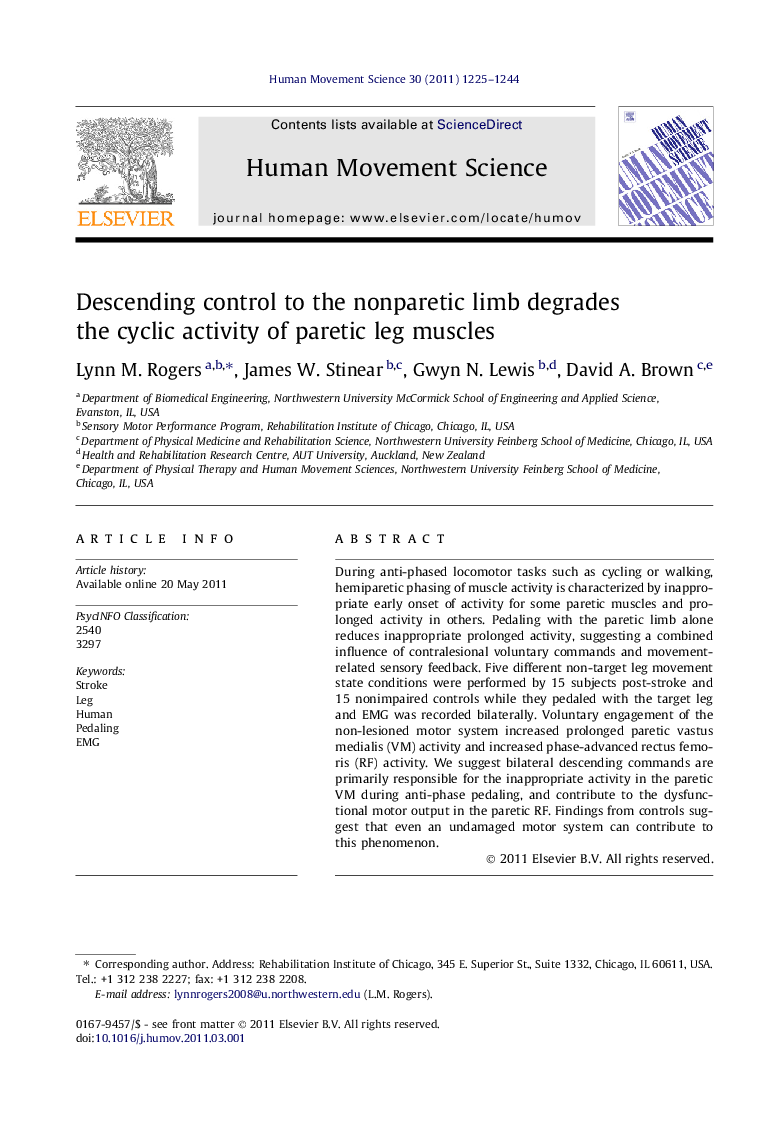| Article ID | Journal | Published Year | Pages | File Type |
|---|---|---|---|---|
| 928497 | Human Movement Science | 2011 | 20 Pages |
During anti-phased locomotor tasks such as cycling or walking, hemiparetic phasing of muscle activity is characterized by inappropriate early onset of activity for some paretic muscles and prolonged activity in others. Pedaling with the paretic limb alone reduces inappropriate prolonged activity, suggesting a combined influence of contralesional voluntary commands and movement-related sensory feedback. Five different non-target leg movement state conditions were performed by 15 subjects post-stroke and 15 nonimpaired controls while they pedaled with the target leg and EMG was recorded bilaterally. Voluntary engagement of the non-lesioned motor system increased prolonged paretic vastus medialis (VM) activity and increased phase-advanced rectus femoris (RF) activity. We suggest bilateral descending commands are primarily responsible for the inappropriate activity in the paretic VM during anti-phase pedaling, and contribute to the dysfunctional motor output in the paretic RF. Findings from controls suggest that even an undamaged motor system can contribute to this phenomenon.
